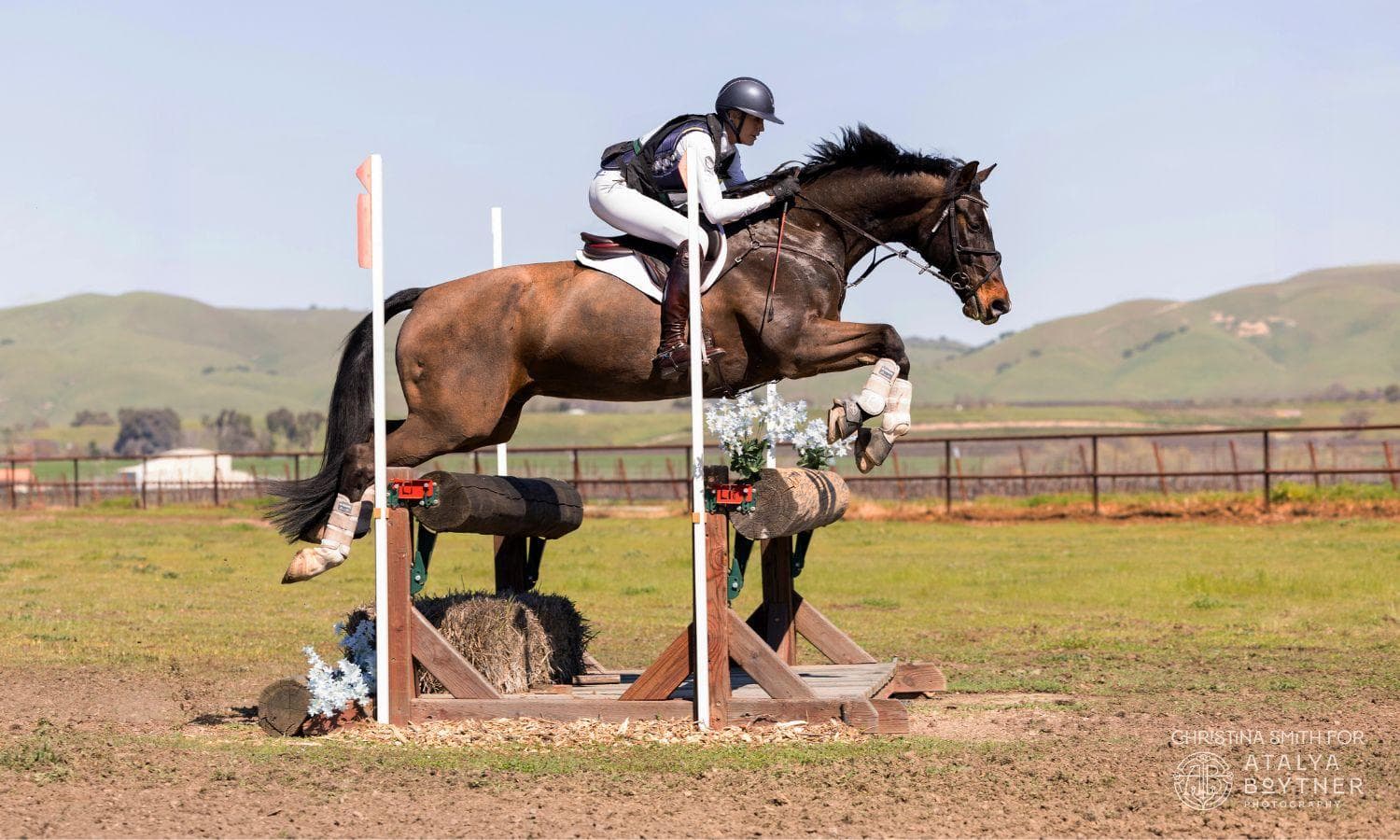Featured Clinician: Ema Klugman
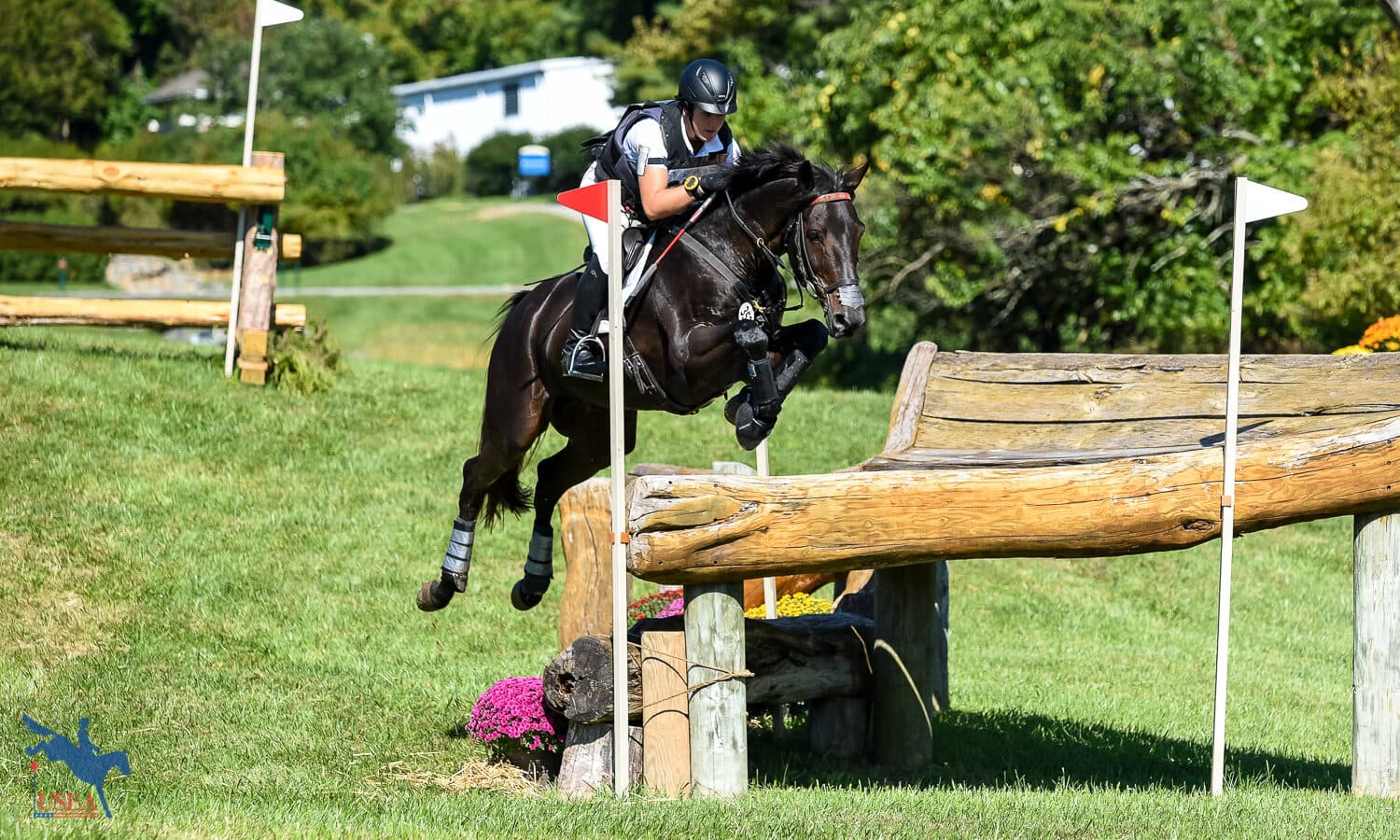
The Featured Clinician article series is provided through a partnership between STRIDER™ and the USEA.
Ema Klugman trusts the process. On self-produced horses, including her longtime four-star mount Bendigo, the 23-year old Maryland-based four-star rider has racked up impressive finishes at some of the U.S.'s most challenging international competitions.
“You have to do it the right way on a few horses before you really learn to do this properly,” Klugman tells STRIDER.
Born in Italy, Klugman learned to ride in Nairobi, Kenya and joined Pony Club shortly after her family relocated to the United States from their native Australia. She has since earned her traditional “A” rating in United States Pony Club and has gone on to complete her Show Jumping & Dressage “A” certifications. Named to Eventing Australia’s High Performance Eventing Generation NEXT Squad, Klugman finished off the 2020 season with wins in the CCI3*-L at the Virginia Horse Trials and the Waredaca Training Three-Day on her two promising young horses.
Klugman is a popular clinician whose students benefit from her emphasis on clarity and process. She is committed to sharing her knowledge and helping her students to make informed decisions about their training and riding. “In a clinic setting, I may never see those riders again. I want my students to understand any given exercise and the reasons I’ve asked them to do it.”
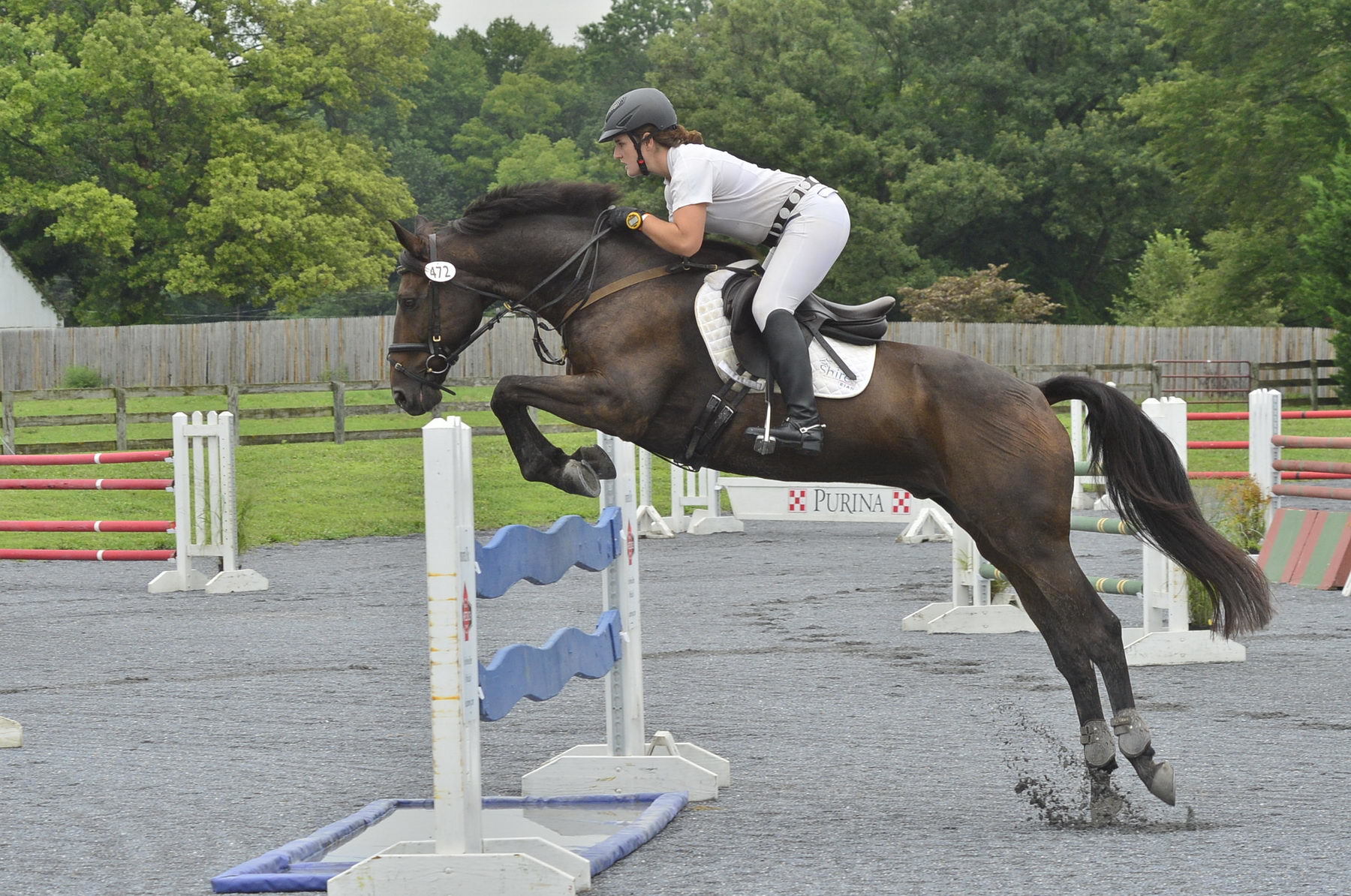
Klugman attributes her comprehensive and explanatory style of teaching to much of the prep-work required for success in the upper-level Pony Club ratings.
“The teaching part of the USPC exam is often the most-failed part. They aim to produce people who can very clearly get their point across. I was so lucky to do a lot of prep-work with Kevin Bowie, she’s basically the Pony Club Guru and is a master at making people explain why they make certain decisions from a training point of view. That’s exactly what those A-Level tests are all about- it’s supposed to be a trainer-to-trainer discussion about what you’re doing with the horse and your riding.”
“I want to create riders who can think independently and be self-sufficient. It’s a disservice to people when it’s not explained why they should do something differently. I don’t want my students to become riders who don’t know why they’re doing what they’re doing. It’s important to know and understand why you use the tack you’re using, for example.”
“Through Pony Club I’ve done a bit of teaching all over, including Alaska and New Zealand. I’m very open to traveling, new experiences, and meeting new people. I love going to new places to see how people ride and what different programs are like.”
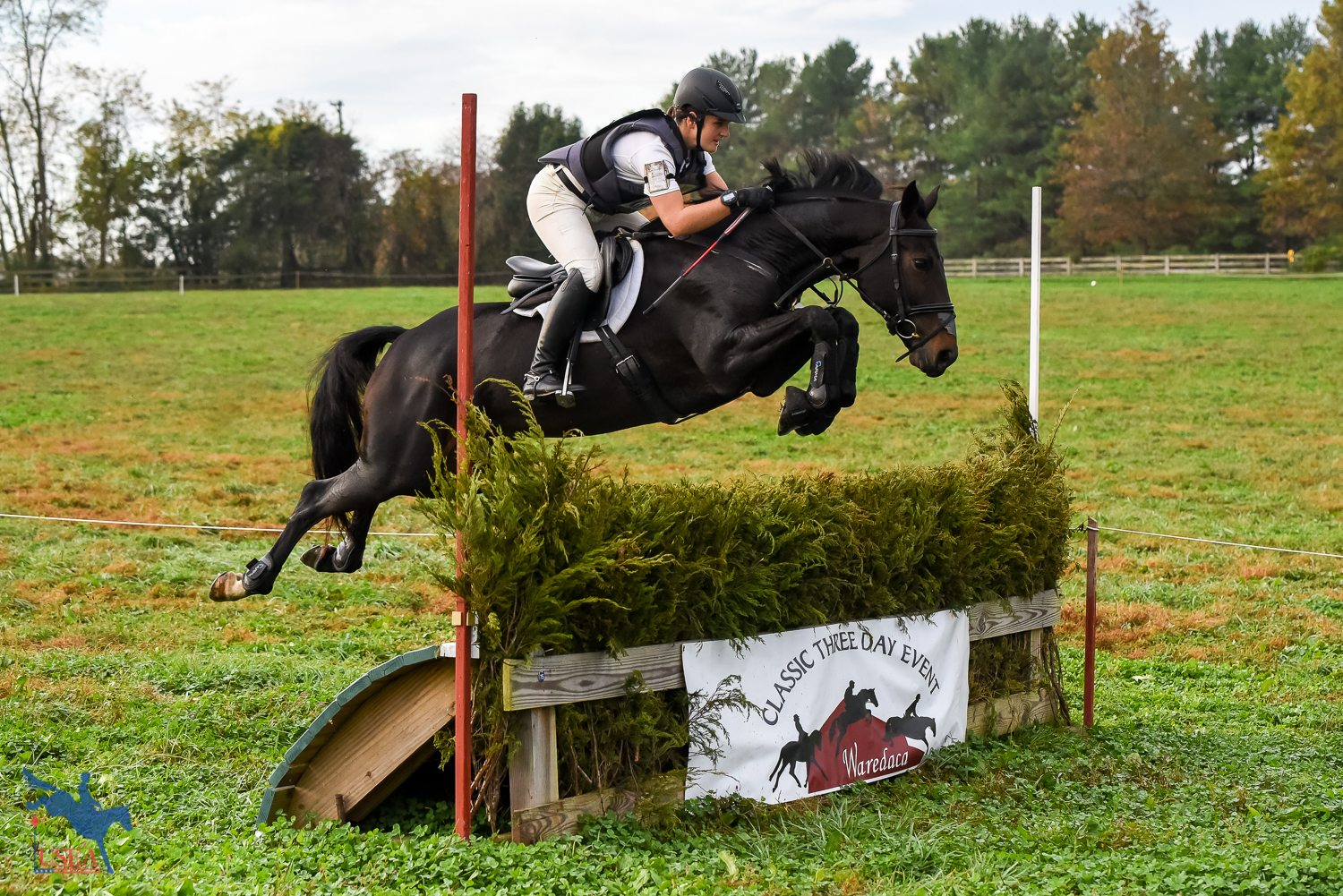
“You end up meeting so many types of people and horses with different goals and aspirations. You often have the 12-year-old kid who can’t see a distance on a feral pony and is gunning for the Olympics in the same group as an Adult Amateur who wants to learn to make it work on the horse they have and whose end-goal is a safe Beginner Novice round. I like that variety.”
“I try to keep lessons friendly and fun . . . I find people are very willing to try things in clinics. They know that it’s one or two days of a new instructor with a different style or approach. They’re aware of that and quite open-minded which is great, so I try to be respectful of that when I am teaching. I know what I’m saying might be different from what their regular coach tells them.”
“I always tell people, ‘It might get worse before it gets better, it’s just training.’ You can try something new today and if it doesn’t work you can go back to doing what you were doing before, but at least you’ve tried it then. It’s about coming up with different tools that work well for your toolbox.”
“Some people think of a clinic as a test, or even a show. But really, we’re all just having a riding lesson. There shouldn’t be any pressure.”
“Whenever you watch horses go, you learn about horses. I think a lot about different ways to train, so I find that teaching clinics helps me to ride better.”
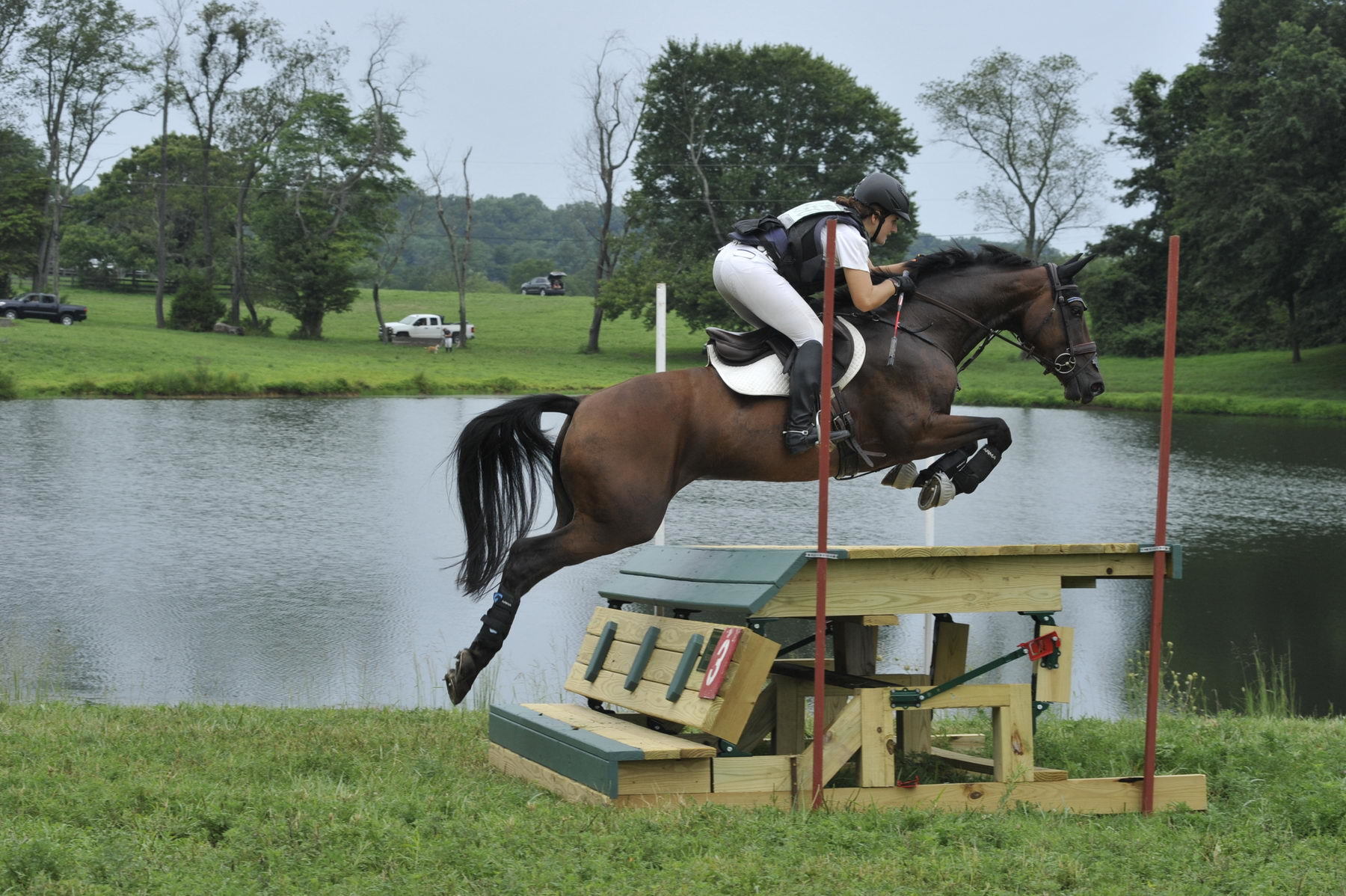
Klugman hopes to continue to pay it forward by sharing much of what she has learned throughout her career with horse and rider combinations of all levels. As a longtime student of the late Packy McGaughan and rider for Marilyn Little for four years, Klugman draws from some of the top influences in the sport.
“I’ve taken on some of the style of all of the coaches who have helped me. As a student you get so used to a certain way that something is explained you begin to adopt some aspects of that coach’s teaching style.”
“I can thank [McGaughan] for the style and some of the exercises. His was a very intellectual approach to the sport and the development of horses and riders, and I try to honor that. [Little] is the best at explaining any concept. She’s so clear and good at getting results from people. She can read a horse and know what to do to improve it, and she has an absolute commitment to excellence. I have really tried to mirror that.”
“I want to spread the good training. I know how hard it is for barns to have access to good people.”

To host Ema Klugman for a clinic at your venue, view her availability on StriderMatch. Follow along on Instagram to keep up with Klugman's training program and string of horses.


